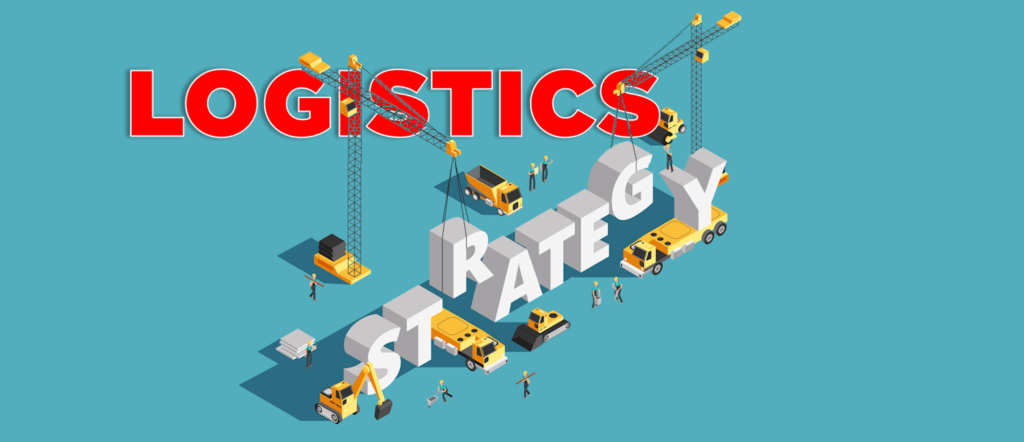When a person hears the term “strategy,” they often think about military operations. Sun Tzu, the famous Chinese military strategist wrote, “Victorious warriors win first and then go to war, while defeated warriors go to war first and then seek to win.” The late Hall of Fame baseball player Yogi Berra stated the same thing in a different way: “If you don’t know where you are going, you’ll end up someplace else.” A strategy is a plan of action that helps get you to where you want to go. Bernd Stöger, Executive Product Manager at KNAPP, explains, “Today, successful companies are those that can make a great idea come true and create an organization to support its implementation.”[1] He also believes nothing is more important for corporate strategy than a world-class logistics strategy. He explains:
“The success of a company has nothing to do with its form, whether as solely online retailer, a startup or a company evolving from brick and mortar retail. How long the company has been in business also turns out to be unimportant. Then, what is crucial for the success of these companies? They have changed the way they see logistics, and no longer view it as just a support process in their organization. They promoted logistics to the level of core process and enabler of new business models and now view a thought-through logistics strategy as an opportunity to stand out by offering a better service level to their customers.”
This observation is not new. Nearly half-a-century ago, James L. Heskett, an Emeritus Professor at the Harvard Business School, wrote, “Logistical considerations have always played a strategic role in business. … Logistics can spell the difference between success and failure in business.”[2]
Developing an Effective Logistics Strategy
Stöger insists, “There are clear advantages to be gained from giving a logistics strategy top priority.” He believes the three most important factors for developing a world-class strategy are:
1. Correct positioning of the logistics strategy. Logically, a logistics strategy cannot be developed separately from an overarching corporate strategy. Stöger notes, “The logistics strategy is closely connected to the company strategy. Accordingly, it is anchored within the company and often prominently positioned in the organigram.” Tradeoffs and compromises will have to be made as various strategies bump up against one another. That’s exactly why the late Sir Winston Churchill insisted, “However beautiful the strategy, you should occasionally look at the results.”
2. Design of the logistics network. According to Stöger, “The challenge is structuring or adapting a logistics network where a forecast is difficult, so that it can continue to change. Companies have an advantage when they define a clear value proposition that they can use to position themselves in the market, and from there to derive the right approach in designing their logistics network. What should the distribution network look like, which activities should be combined and what does the service level look like?”
3. Digitalization and automation. “Seldom does an online strategy lead to success if a company has not reached a minimum level of digitization and learned to think this way,” Stöger writes. “Digitalized business processes and smooth integration are crucial for success in an omnichannel world. The same applies to integrating brick and mortar retail with the online store as well as to distribution and fulfilment centers. Seamless integration promotes fast and flexible growth.” Companies generally digitalize in order to gain better visibility into their operations, to optimize business processes, and to gain actionable insights that improve corporate decision-making.
Stöger asserts, “Once the above factors have been taken care of, it’s down to the nuts and bolts: successfully integrating the logistics software into the software landscape.” Sounds easy; however, the “nuts and bolts” can be extremely complex. As a result, many experts insist cognitive technologies (aka artificial intelligence (AI)) must play a prominent role in any logistics strategy. As Manish Sharma (@Manish_sharma) and Kris Timmermans (@KrisTimmer), executives at Accenture, observe, “A supply chain is a complex, inter-woven lifeline that pulls a company forward with many moving parts — any of which can fail under multiple strains and pressures. It’s no longer a question of how crucial the supply chain is to the fate of companies.”[3]
Implementing Your Strategy
Henry Mintzberg (@Mintzberg141), the Cleghorn Professor of Management Studies at the Desautels Faculty of Management of McGill University, insists, “Strategy is not the consequence of planning, but the opposite: its starting point.” He’s absolutely correct. Strategy is a vector pointing you in the right direction. Planning helps you stay on that vector and helps you make adjustments when things fail to go as planned. Dave Bergeson, Vice President of client relations at the Association Management Center, explains things seldom go as planned. He writes, “The German field marshal, known as Moltke the Elder, believed in developing a series of options for battle instead of a single plan, saying ‘No plan of operations extends with certainty beyond the first encounter with the enemy’s main strength.’ Today, ‘no plan survives contact with the enemy’ is the popular reconfiguration of this concept.”[4]
Since things can go awry, companies would do well to assess potential risks before implementing their logistics strategy. Jon Wylie (@theminingguy), President of Global Natural Resources at Proudfoot, explains, “Now, more than ever, it is essential that the industry has a robust risk management network to manage disruptions. A good risk management framework identifies known and unknown risks. A typical unknown risk is a military coup in a country. A known risk could be a supplier’s financial troubles, which may disrupt the supply of specific components. Creating a risk management framework, assigning a weightage to every risk and constantly monitoring all the risks is essential for contingency planning, and ultimately improving supply chain efficiency and resilience.”[5]
Wylie suggests companies take three other steps when implementing their logistics strategy. First, “identify areas to optimize your network and bring down the total cost of ownership (TCO).” Second, like Stöger, he recommends automating and digitizing the supply chain. He writes, “Emerging technologies such as the Internet of Things (IoT), artificial intelligence and autonomous vehicles can play a positive disruptive role. … AI can also be applied to evaluating supply chain risk and developing a more robust strategic sourcing strategy.” Finally, Wylie suggests creating and implementing “a multi-stakeholder engagement plan.” He writes, “Nothing moves until people move. Any transformation you engage on, from implementing more robust supply chain networks to digitalization, will require you to engage all the people and communities involved in that change — starting with your own employees and suppliers.”
Concluding Thoughts
The staff at 20Cube Logistics notes, “Supply chain logistics is going through a paradigm shift wherein leading e-commerce and logistics have raised customer expectations with timely delivery and status updates of the consignment. Many organizations today are adopting the latest technologies like AI, Blockchain, and Machine Learning to provide and fulfil customer demand and, most importantly, to sustain in the highly competitive market.”[6] The fact that the logistics sector is undergoing a paradigm shift makes a logistics strategy all the more important. As Stöger concludes, “Logistics strategies have become increasingly important in the past years. They often determine the success of companies, or lack thereof.” It should be obvious, but poor implementation of a great strategy isn’t much better than starting with a poor strategy. That’s why Harlow Cohen, a professor of organizational behavior in the Weatherhead School of Management at Case Western Reserve University, insists, “Implementation Is the weak sister of strategic thinking.”[7]
Footnotes
[1] Bernd Stöger, “The New Significance of a Logistics Strategy: Role, Success Factors, and Integration,” Logistics Viewpoints, 3 March 2022.
[2] James L. Heskett, “Logistics—Essential to Strategy,” Harvard Business Review, November 1977.
[3] Manish Sharma and Kris Timmermans, “Unbreakable and Resilient: Supply chain and logistics of the future,” Logistics Management, 5 August 2021.
[4] Dave Bergeson, “Strategic Planning: Moltke the Elder, Dwight Eisenhower, Winston Churchill, and Just a Little Mike Tyson,” AMC Thought Leadership.
[5] Jon Wylie, “4 Steps to Navigating the Changing Logistics Landscape,” Supply & Demand Chain Executive, 27 July 2021.
[6] Staff, “Implementing AI in Supply Chain Logistics,” 20Cube Logistics, 30 October 2020.
[7] Geert De Lombaerde, “Implementation Is the Weak Sister of Strategic Thinking,” IndustryWeek, 22 March 2022.





